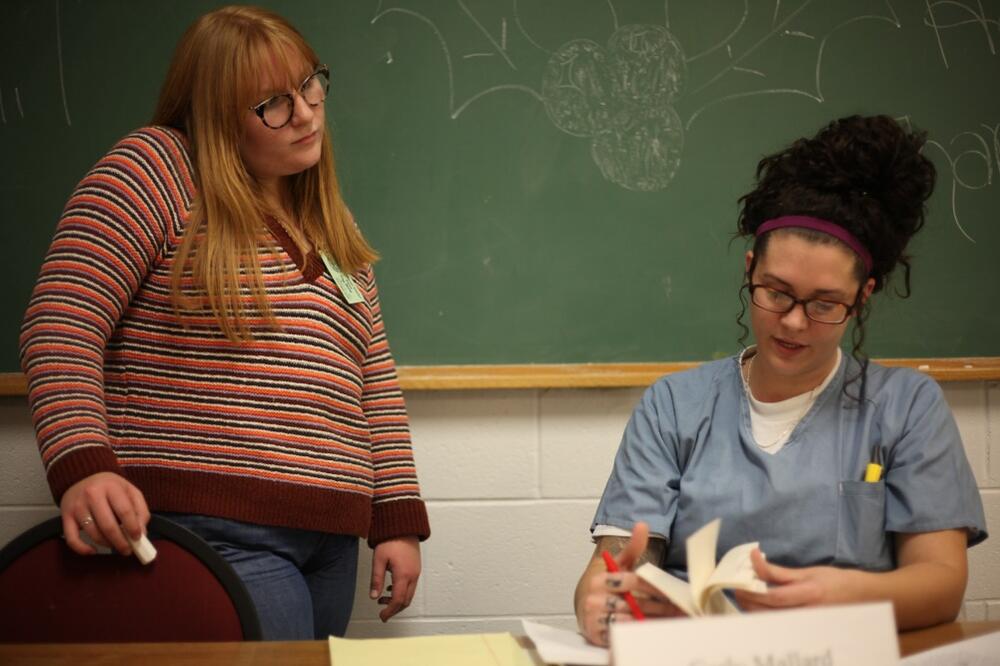The Rhodes College Liberal Arts in Prison Program began in 2016 with a vision to offer incarcerated students a version of the Search sequence that has been a signature feature of the Rhodes curriculum since 1945. The result was The Great Books Reading Group, which began meeting in the spring of 2017 at the Women's Therapeutic Residential Center (WTRC), part of the West Tennessee Penitentiary in Henning, TN. Twenty-five WTRC residents wrote essays indicating their desire to participate in the program, and seven Rhodes professors volunteered to teach.
For five semesters, the Great Books Reading Group met on Monday evenings with six faculty teaching two-week series on books of their choice. In mid-2019, the reading group was replaced by a for-credit program consisting of four courses over two years, leading to a Certificate in Liberal Arts. Eighteen of the 57 incarcerated women who applied for the Culture & Values program in 2019 were accepted and in-person classes commenced in September.
In spring 2020 the program went remote, relying on Zoom for class sessions and JPay tablets for quizzes, lectures, and other assignments. In May 2021, Rhodes faculty and students returned to WTRC to celebrate the graduation of the first cohort of students to earn Rhodes Certificates of Liberal Arts. As of 2025, 32 incarcerated women have completed the certificate and a total of 92 women have earned 765 Rhodes credits.
The first Rhodes undergraduate student to volunteer in the program was Madison Zickgraf '21, who facilitated classes and trained student volunteers from 2019 to 2021. In 2020, Prof. Stephen Haynes began teaching RS 232: “Mass Incarceration: Theoretical and Practical Perspectives,” in which enrolled students serve as peer tutors at WTRC. In all, about 70 students have volunteered in the program.
As of 2025, 40 Rhodes faculty from 12 departments have taught in the Great Books Reading Group and/or the Certificate of Liberal Arts programs at WTRC. Departments represented include Biology, Chemistry, Humanities, Ancient Mediterranean Studies, English, History, Modern Languages and Literatures, Philosophy, Political Science, Russian Studies, and Religious Studies.
The program works closely with the Tennessee Department of Correction, the Tennessee Board of Regents, the Tennessee Higher Education Commission, the Tennessee Higher Education Initiative, the Southern Collective for Higher Education in Prison, and the Bard Prison Initiative. In 2024 the Liberal Arts in Prison program joined the Consortium for Liberal Arts in Prison.
Liberal Arts in Prison Program in the News:
Rhodes’ Prison Education Program Seeks Transformation Through the Liberal Arts
Rhodes College Joins National Consortium for the Liberal Arts in Prison
Rhodes Takes the Liberal Arts to Prison
College for the Incarcerated: Our Minds Are Free, Our Hearts Are Free
Views from the Black Site
Prisoners, Professors Discuss Great Books, the Life of the Mind
